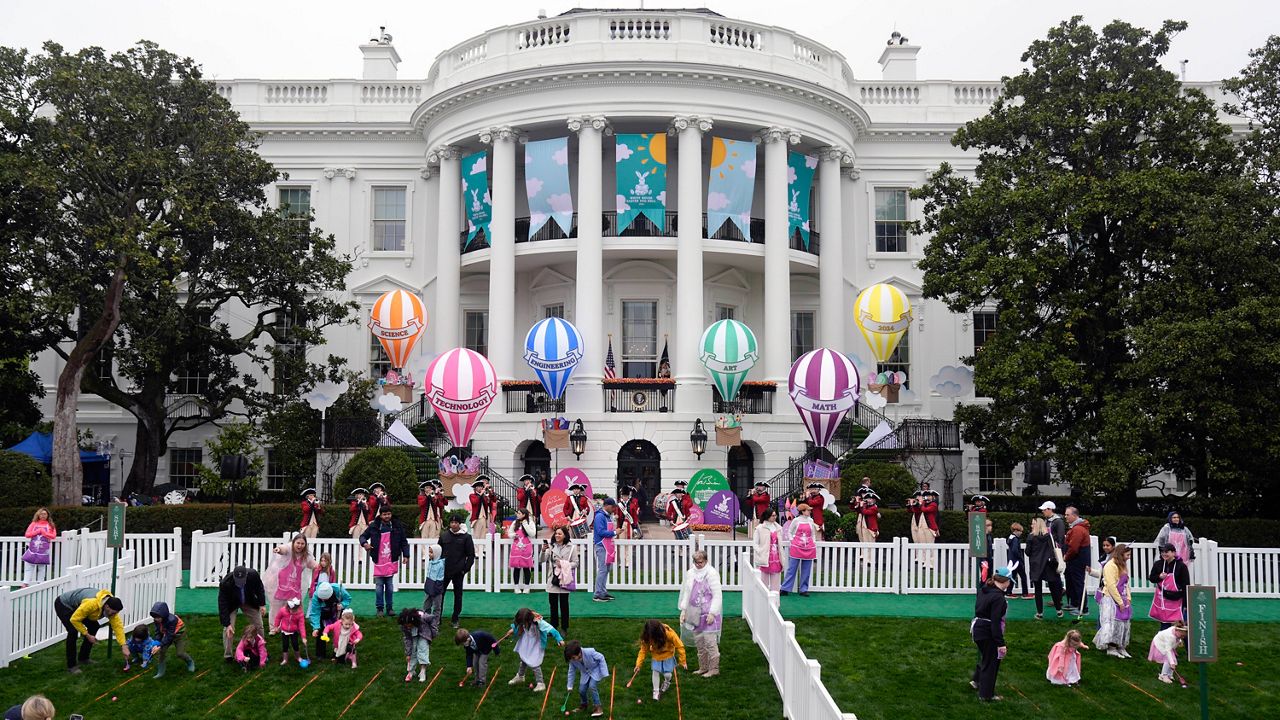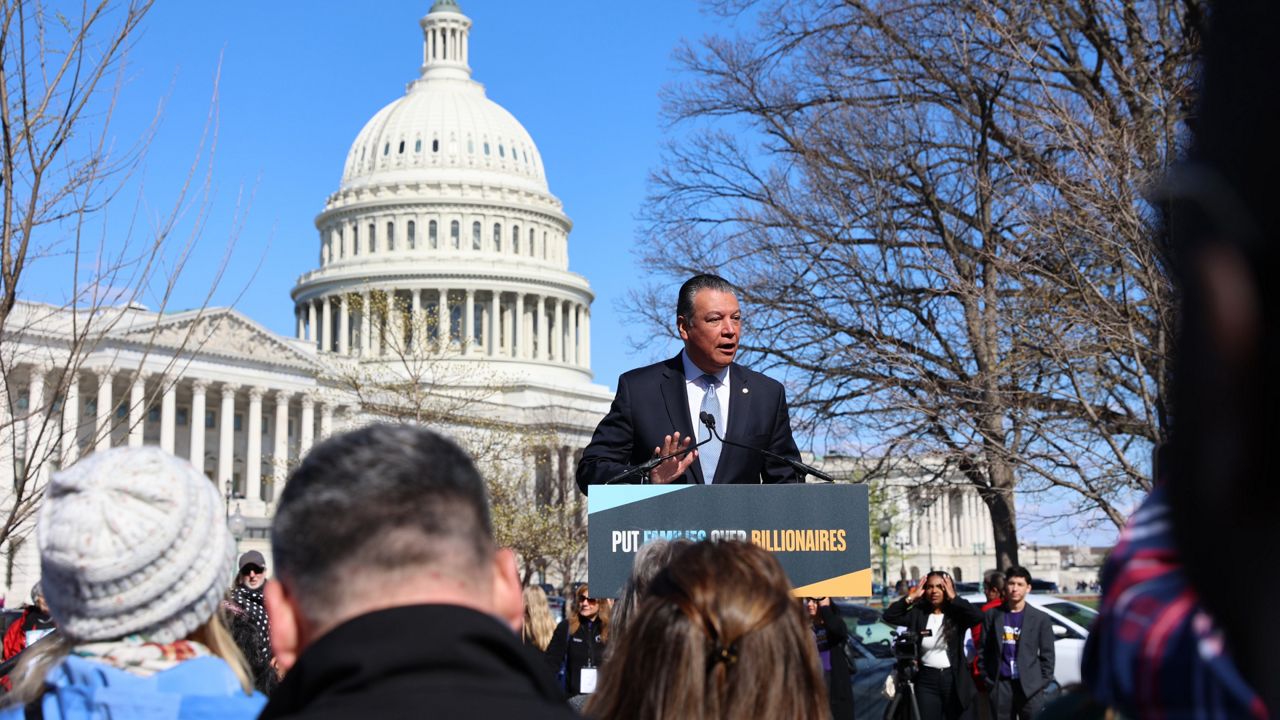Nebraska Gov. Jim Pillen said Tuesday that he would not call a special legislative session to change the way the state awards its electoral votes, dealing a blow to former President Donald Trump and other Republican figures who pushed for the shift ahead of November's election.
The announcement comes one day after Nebraska state Sen. Mike McDonnell, a Democrat-turned-Republican lawmaker widely viewed as a key swing vote on the issue, signaled his opposition to making such a change so close to November’s election.
McDonnell, who switched parties earlier this year after the Nebraska Democratic Party censured him over votes on legislation related to reproductive rights and transgender policies, said he would not support changing the state’s policy of awarding its electoral votes by congressional district in favor of a winner-take-all system favored by Trump and other Republicans.
“In recent weeks, a conversation around whether to change how we allocate our Electoral College votes has returned to the forefront,” McDonnell said in a statement. “I respect the desire of some of my colleagues to have this discussion, and I have taken time to listen carefully to Nebraskans and national leaders on both sides of the issue.”
“After deep consideration, it is clear to me that right now, 43 days from Election Day, is not the moment to make this change,” he continued, adding that he informed Nebraska Gov. Jim Pillen that he would not budge on his “long-held position” and would, in fact, “oppose any attempted changes to our electoral college system before the 2024 election.”
He went on to say that he encouraged Pillen and his colleagues to instead pass a constitutional amendment next year that will allow Nebraskans the opportunity to make their voices heard on the issue on the ballot.
While Nebraska is a red state, its second congressional district, which encompasses Omaha and its suburbs, is competitive. Barack Obama won the district in 2008 and Joe Biden won it in 2020, giving them each an extra electoral vote — and in a potentially tight race, one vote could make the difference for both candidates.
Trump won the state by 19 points in 2020, but Biden won the second district by nearly 7 points, winning him the single electoral vote.
Pillen said he would convene a special session to address the change if he had the commitments of 33 votes in the state’s unicameral legislature, enough to overcome a filibuster from Democrats. While Republicans do enjoy a filibuster-proof majority in the legislature, one vote is enough to derail the effort.
In a statement Tuesday, Pillen said that he and his team "have worked relentlessly to secure a filibuster-proof 33-vote majority to get winner-take-all passed before the November election."
"Unfortunately, we could not persuade 33 state senators," Pillen continued, singling out McDonnell's confirmation that he was unwilling to make the change. "That is profoundly disappointing to me and the many others who have worked so earnestly to ensure all Nebraskans’ votes are sought after equally this election. Based on the lack of 33 votes, I have no plans to call a special session on this issue prior to the 2024 election."
It was reported last week that South Carolina Sen. Lindsey Graham, a staunch Trump ally, met with Nebraska legislators to urge them to change to a winner-take-all system, while Nebraska’s all-Republican congressional delegation sent a letter to Pillen and the state’s Legislature speaker voicing their support for such a change.
Graham reportedly met with more than a dozen Republican legislators last week at Pillen’s mansion.
“To my friends in Nebraska, that one electoral vote could be the difference between Harris being president and not,” Graham said on NBC’s “Meet the Press” on Sunday. “And she’s a disaster for Nebraska and the world.”
McDonnell, who is reportedly eyeing a run for mayor in his home city of Omaha, said that the state’s current electoral system “brings tremendous national attention” to the region, is “impactful on the local economy” and encourages presidential candidates to “make their case to all Nebraskans, instead of just flying over and disregarding us.”
In a post on his social media platform on Monday, Trump hammered McDonnell as "'Just another “Grandstander!'" after his opposition to the change.
"It would have been better, and far less expensive, for everyone!" Trump said of changing the state to a winner-take-all system for electoral votes. "Unfortunately, a Democrat turned Republican(?) State Senator named Mike McDonnell decided, for no reason whatsoever, to get in the way of a great Republican, common sense, victory. Just another 'Grandstander!' Who knows, perhaps one of the others two Republicans that were a “NO” Vote will change their minds."
Nebraska Democratic Party Chair Jane Kleeb celebrated McDonnell and the other lawmakers opposing the change for protecting the state's so-called "blue dot."
"Nebraska has a long and proud tradition of independence, and our electoral system reflects that by ensuring that the outcome of our elections truly represents the will of the people without interference," Kleeb said in a statement. "Senator McDonnell is standing strong against tremendous pressure from out-of-state interests to protect Nebraskans’ voice in our democracy. In this election and those to come, Nebraskans will continue to lead the way by electing leaders at every level who stand up for the people and respect our spirit of independence."
A single electoral vote in Nebraska could potentially impact the outcome of the election. For example, if Trump wins all five of Nebraska’s electoral votes as well as the swing states of Georgia, Arizona and Nevada and Vice President Kamala Harris wins Wisconsin, Michigan and Pennsylvania, the race would be tied at 269 electoral votes apiece. That would then send the election to the House of Representatives, where each state delegation casts a single vote, which would favor Trump.
If Nebraska continues with its current system and Harris is awarded one of its electoral votes, she would win under the same scenario. Minnesota Gov. Tim Walz, Harris' running mate and a Nebraska native, courted voters in the Omaha area last month.
A similar effort to change the way Nebraska allocates its electoral votes, backed by Trump, Pillen and other GOP figures, failed to gain traction earlier this year.
The only other state that awards its electoral votes in similar fashion, Maine, had signaled that it would switch to a winner-take-all system if Nebraska moved to do so earlier this year. But amid the renewed attention on the Cornhusker State in recent weeks, Maine Democrats signaled that they might not be able to make the change ahead of the election.
Spectrum News' Ryan Chatelain contributed to this report.










